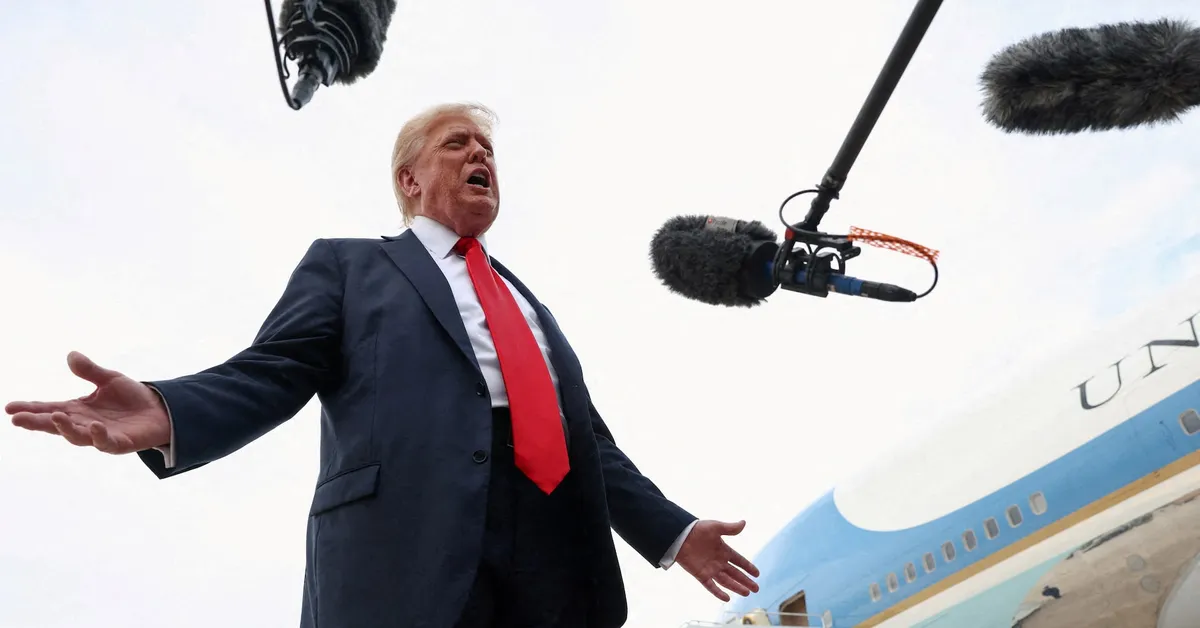
BRUSSELS, July 21 (Reuters) - The European Union is currently assessing a wider range of potential counter-measures against the United States, as the likelihood of reaching a satisfactory trade agreement with Washington diminishes, according to sources familiar with the discussions among EU diplomats. With growing concerns, an increasing number of EU member states, including Germany, are contemplating the implementation of extensive anti-coercion measures. These measures would allow the EU to target various U.S. services and sectors in the absence of a trade agreement.
The European Commission, which is responsible for negotiating trade agreements on behalf of the 27-member bloc, had been on track for a deal. Initially, this agreement would have allowed the EU to face a 10% U.S. tariff on most exports, contingent on certain concessions. However, these prospects now appear bleak following President Donald Trump's warning of a potential 30% tariff to be enforced by August 1. This development follows recent discussions between EU Trade Commissioner Maros Sefcovic and his U.S. counterparts in Washington.
Sefcovic reported a grim assessment of the ongoing negotiations to EU envoys last Friday. He indicated that a 30% tariff would severely hinder transatlantic trade. During his meetings, U.S. officials proposed varying solutions, with one diplomat noting that there seemed to be a lack of consensus on what would be acceptable to President Trump. The divergent responses from U.S. counterparts added to the uncertainty, as no clear direction emerged from the talks.
Meanwhile, the possibility of alleviating or abolishing the existing 50% tariffs on steel and aluminum, along with the 25% tariffs on cars and car parts, seems increasingly limited. The U.S. administration has also dismissed the EU's request for a standstill agreement, which would prevent any further tariffs from being imposed following a deal. The rationale behind this rejection is that President Trump’s authority on national security matters cannot be constrained, particularly under Section 232 trade investigations that involve various industries, including pharmaceuticals, semiconductors, and timber.
As a result, the sentiment among EU countries has shifted, with many diplomats noting a readiness to respond to the U.S. actions, despite a strong preference for a negotiated resolution. Currently, the EU has a package of tariffs on €21 billion ($24.5 billion) worth of U.S. goods, which remains suspended until August 6. The bloc is also deliberating on further countermeasures targeting €72 billion of U.S. exports.
Increased discussions are taking place regarding the use of the EU's comprehensive anti-coercion instrument (ACI), which permits the bloc to retaliate against third countries that exert economic pressure on member states to alter their policies. Although originally designed with China in mind, this instrument would enable the EU to target U.S. services, restrict access for U.S. companies to public procurement and financial services markets, or limit U.S. investment within the EU.
France has been a staunch advocate for utilizing the ACI, though some countries hesitate to view it as a viable option, perceiving it as a "nuclear option." President Trump has issued warnings of retaliation should other nations take action against the United States. Recently, European Commission President Ursula von der Leyen remarked that the ACI was intended for extraordinary circumstances, emphasizing that the EU is not yet at that stage. To invoke the ACI, the Commission would require a qualified majority of 15 countries representing 65% of the EU population. While it would not proceed unless confident of its success, increasing support is evident, with Germany among those suggesting that the ACI should be considered seriously.
As the situation develops, the EU continues to navigate a complex trade landscape, balancing the need for strategic responses against the desire for constructive dialogue with the United States.